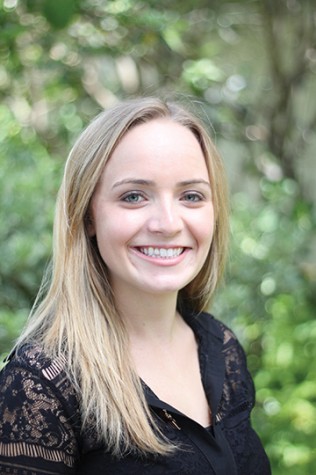A college student goes out on a Friday night. She meets a nice guy, has a nice time and decides to have an ever nicer time back at his house. The two wake up and smile at the hazy, yet vaguely pleasant memory of their night together before they suddenly panic, “Damn, did we use protection?”
Maybe the answer is yes, but unfortunately oftentimes that isn’t the case. There’s the solution of emergency contraceptives, but this is now Saturday morning and health centers at many college campuses, including San Diego State’s, aren’t open.
So what is this hypothetical couple supposed to do? At most campuses their options are either finding an off-campus pharmacy—assuming they have adequate transportation and time—or risking an unintended pregnancy. The hypothetical choice may seem clear, but those who actually find themselves in this situation don’t always act responsibly. To help make the choice easier, some schools are making protection available to students any time of the week.
Shippensburg University in Pennsylvania installed a vending machine that dispenses the emergency contraceptive pill Plan B, commonly known as the “morning-after” pill. The machine also dispenses condoms, pregnancy tests and decongestants. It’s located inside a school building where only students have access, and students are required to pay $25 to obtain the pill.
The machine was implemented more than three years ago but sparked attention from the FDA earlier this year when critics questioned the legality and the supposedly corrupting influence of easy accessibility to the drug. The FDA chose not to take any regulatory action, leaving the students of Shippensburg University free to protect themselves quickly and conveniently.
This is a victory for reproductive rights. Any increase to birth control access is a positive influence on the range of options students have to control the direction of their lives. I commend Shippensburg University for doing its part to prevent unintended pregnancies, and to SDSU, I ask, “Why not us next?”
Approximately 107 out of every 1,000 women aged 20 to 24 will have an unintended pregnancy according to a 2011 report by the National Campaign to Prevent Teen and Unplanned Pregnancy. This is the highest proportion out of any age group. They are also most likely to use emergency contraception, with 23 percent reporting prior use.
These figures tend to be accentuated around college campuses. With such a high population of sexually active students at risk for unintended pregnancies, it’s only logical to make emergency options as available as possible.
SDSU students already have access to some birth control methods via the Family PACT services at Calpulli student health center, but the implementation of an easy-access machine could take the commitment to students’ reproductive health one step further.
Currently, Aztecs have access to condoms, hormonal birth control methods and emergency contraception with a prescription. However, these services are only accessible Monday through Friday during limited hours. Most emergency contraceptives already have limited effectiveness compared to other methods of birth control, and efficacy declines as time passes. It’s most effective within the first 24 hours, which leaves plenty of students who experience a birth control failure on a Friday or Saturday night out of luck.
Opposition to easy-access emergency contraceptive is nothing new. Contrarians have loudly voiced their opinions for decades. Some spout out the classic birth control argument of how access would suddenly remind young adults that sex exists and therefore encourage them to engage in it. Others fret that ladies will take advantage of the situation and take Plan B as their regular form of birth control and hurt their long-term health.
Both arguments are flawed. The former I find too ridiculous to debate. The latter is inaccurate and based on a lack of information regarding the subject. The World Health Organization, the American College of Obstetricians and Gynecologists and the Association of Reproductive Health Providers have all come forward stating there is no known harm in long-term repeated use of emergency contraception.
So we know it’s safe and we know it’s in demand, so it’s time to do something about it. A primary birth control method is clearly the best route to take, but planning for the unplanned can only benefit students who are victims of poor decisions or bad luck. This is an opportunity for universities across the country to implement a simple solution to protect students.








